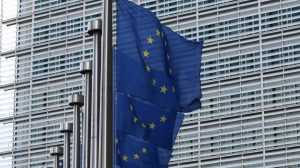The World Bank expects foreign direct investment (FDI) inflows to Serbia to remain at a stable level of six per cent in both 2019 and 2020, while the country’s inflation rate is expected to stay below the target level of the National Bank of Serbia (NBS), Serbian news agency Tanjug has reported.
Speaking at a presentation in Belgrade, World Bank Senior Economist for Europe and Central Asia Galina Andronova Vincelette said that Serbia must look after the financial reserves the country has generated through fiscal consolidation efforts to maintain the economy’s competitiveness given the possibility of a major slowdown in the world economy.
According to Vincelette, protecting exports should be one of the main priorities of the Serbian government while an increase in wages could lead to lowering competitiveness.
World Bank senior economist for Serbia Lazar Šestović noted that Serbia’s competitiveness was strengthened by a vast number of investments in the manufacturing sector, warning that an economic slowdown in Germany and/or other EU countries where the automotive industry presents a significant share in the economy, could leave Serbia with a weakened manufacturing sector and curbed production.
The two economists also pointed out that investments in the manufacturing sector will allow FDI in the country to retain its current level.





Add Comment